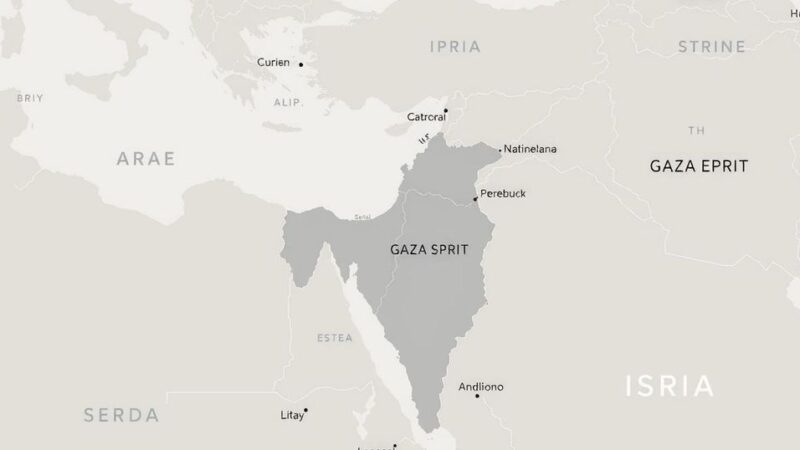Colombia has joined China’s Belt and Road Initiative under President Gustavo Petro, indicating a shift in foreign policy away from traditional U.S. alliances. The memorandum of understanding emphasizes cooperation in infrastructure and trade but lacks concrete plans. Concerns have arisen regarding potential repercussions from the Trump administration, as Colombian business leaders prioritize the U.S. relationship, given the existing trade dynamics.
Colombia has officially joined China’s Belt and Road Initiative, as announced by President Gustavo Petro. This move is significant as the initiative, often referred to as the New Silk Road, already involves over 140 countries. The memorandum of understanding was signed on Wednesday, emphasizing a commitment to enhanced cooperation across various sectors, particularly in infrastructure and trade.
This development marks a departure from Colombia’s traditional alliance with the United States, demonstrating growing Chinese influence in Latin America. Prior to this, 21 countries in the region had already entered into agreements with Beijing under this initiative. President Petro’s decision has taken shape against a backdrop of escalating tensions with U.S. President Donald Trump. In fact, Trump had previously threatened significant tariffs in response to a deportation dispute back in January.
Petro is currently on a week-long visit to China and articulated his intentions to bolster ties with the nation in a speech to supporters last week. He stated, “I am not in a trade competition with China or the United States. Colombia will be won by whoever makes the best offer during the bidding process.”
Economic collaboration between Colombia and China has been growing, highlighted by the formation of a working group during discussions about joining the Belt and Road Initiative by October 2024. However, it is important to note that the agreement signed lacks specific projects or financial commitments. The nature of the deal is non-binding, giving future Colombian administrations the option to withdraw.
Sergio Gúzman, who directs Colombia Risk Analysis, commented on the matter, stating, “This is right now much more a political move by the Colombian government than it is an economic move.” He sees Petro’s signing of the deal as a clear challenge to Trump’s efforts to reduce Chinese influence in the region.
Moreover, Petro raised questions regarding preferential treatment towards the United States. In his remarks, he asked, “What harm has China done to us? Did it invade us, did it take Panama from us?” This statement alludes to historical grievances surrounding Panama’s separation from Colombia, supported by the U.S.
However, concerns have surfaced among Colombian business leaders about potential retaliation from the Trump administration due to this decision. Javier Díaz Molina, leader of Colombia’s National Association of Foreign Trade, remarked on the pressure tactics employed by the U.S. to secure preferential treatment in trade with regional partners.
Despite the current 10% tariffs imposed on Colombian exports, essential goods like petroleum and coffee, many stakeholders still emphasize the importance of maintaining a robust relationship with the United States. María Claudia Lacouture, president of the Colombian-American Chamber of Commerce, echoed this idea. She stated, “Colombia, as a sovereign state, can and should explore new trade opportunities. However… these must generate concrete benefits.”
Colombia’s export dynamics reveal stark contrasts between its trade relationships with China and the United States. The country imported similar quantities of goods from both nations, but exports to the U.S. significantly outweighed those to China, resulting in a $13.5 billion trade deficit with Beijing last year.
The preceding discourse about the Belt and Road Initiative often includes criticism surrounding the possibility of poor countries falling into deep debt and the negative impacts on environmental and labor standards. Nonetheless, supporters argue that the loan terms through this initiative are no worse than those offered by the International Monetary Fund.
In summary, Colombia’s decision to join China’s Belt and Road Initiative reflects a notable shift in its foreign policy, signaling a potential challenge to U.S. influence in the region. President Petro’s move fosters increased cooperation with China, although the specifics of the agreement remain unclear and potentially non-binding. Business leaders express concerns over potential backlash from the U.S., emphasizing the need for tangible benefits in this new partnership. The balance of trade remains heavily skewed in favor of the United States, raising questions about the viability of this new alignment with China.
Original Source: www.miamiherald.com






